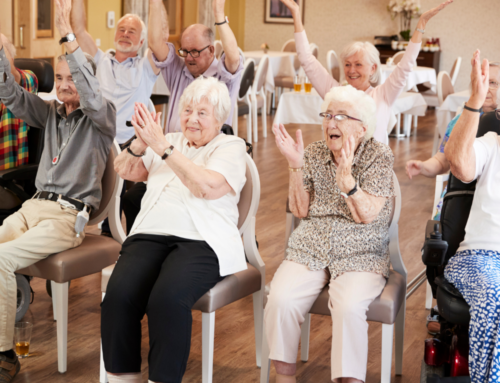Share This Story!
Are You Ready To Age Gracefully?
Aging is a natural part of life. Time brings wisdom, experience, and a fair share of wrinkles. Age, however, can bring a host of health complications. Is there any way to look and feel young and healthy? There is good news. The country is moving into a period where 18 million more Americans will turn 65 by 2030. There is no fountain of youth, but these 8 habits can help anyone feel young and healthy.
1. Sleep is not the enemy
The hustle culture has discounted the need for sleep. However, getting a good night’s rest is crucial for health and longevity. Sleep is the period when the body rests and regenerates. There are also several health benefits. For starters, proper sleep reduces fine lines, wrinkles, and dark circles under the eyes. Sleep also helps with managing weight, stress, and heart health. Get at least 7 hours of sleep nightly.
2. Drink up!
Staying hydrated has a host of benefits. These benefits become even more critical with age. Most of the body’s functions need water for top performance. Drinking enough water daily helps with weight loss, energy, brain function, digestive health, and blood pressure. Water also helps with skin and joint health. Research suggests about 3.7 liters of water for men and 2.7 liters for women.
3. Establish a skincare routine
Staying young and healthy could mean looking young and healthy too. And that’s possible with a proper skincare routine. Age brings more wrinkles, fine lines, dark spots, and discoloration. All these things combine to make someone look older. Speak with a dermatologist for the right products to use daily. These will often include a cleanser, moisturizer, and vitamin C serum.
4. The joys of exercise
Exercise is transformative both inside and out. Yes, people who exercise regularly will have stronger, more defined bodies. However, the inner workings of exercise keep everyone young and healthy, especially seniors. Exercise prevents chronic conditions like high blood pressure, diabetes, and heart disease. There’s also increased cognitive function, reduced stress, and generally longer life. Regular exercise also keeps joints and the spine healthy, reducing the chances of arthritis and fractures. As little as 30 minutes of medium- to high-intensity activity can be extremely beneficial.
5. Cut back on processed foods and sugars
Those cookies, chips, sodas, and candy can be irresistible. But with age, processed foods and refined sugars become a more significant threat to the body. Overconsumption leads to obesity and even autoimmune diseases. Scientists have also linked processed foods to metabolic syndrome. Get into the habit of cutting these foods, opting for healthy, natural fruit and vegetables.
6. Feed your brain
Learning should not slow down with age. Pick up a new skill, read a book, or indulge in a hobby every day. These activities improve cognitive function, reduce stress, and create new connections. With age, new skills and hobbies can also aid in forming new relationships, helping with depression and reduced chronic conditions.
7. Slather on that sunscreen!
The sun’s harmful rays can cause severe long-term damage to the skin. These rays can also accelerate the signs of aging. Millions of Americans forget to put on sunscreen, increasing the chances of skin cancer. Use sunscreen daily with an SPF of at least 30, making sure to reapply every 2 hours.
8. Make health a priority
Establishing a stable relationship with healthcare providers is the best habit of all. Even with an excellent bill of health, make sure to speak with a doctor at least once yearly. Wellness checks should include cholesterol measurements, blood pressure checks, blood sugar tests, bone density, and certain cancers. These can ensure any critical issues are dealt with immediately.
Positive habits are the fountain of youth
With age, establishing healthy habits is the key to a long, youthful life. These habits become harder to establish in later years, so start today. Establish proper eating, sleeping, skincare, and exercise habits. Continue to learn skills that are challenging and improve cognitive function. Most importantly, visit a doctor regularly to stay ahead of any potential health crises.





